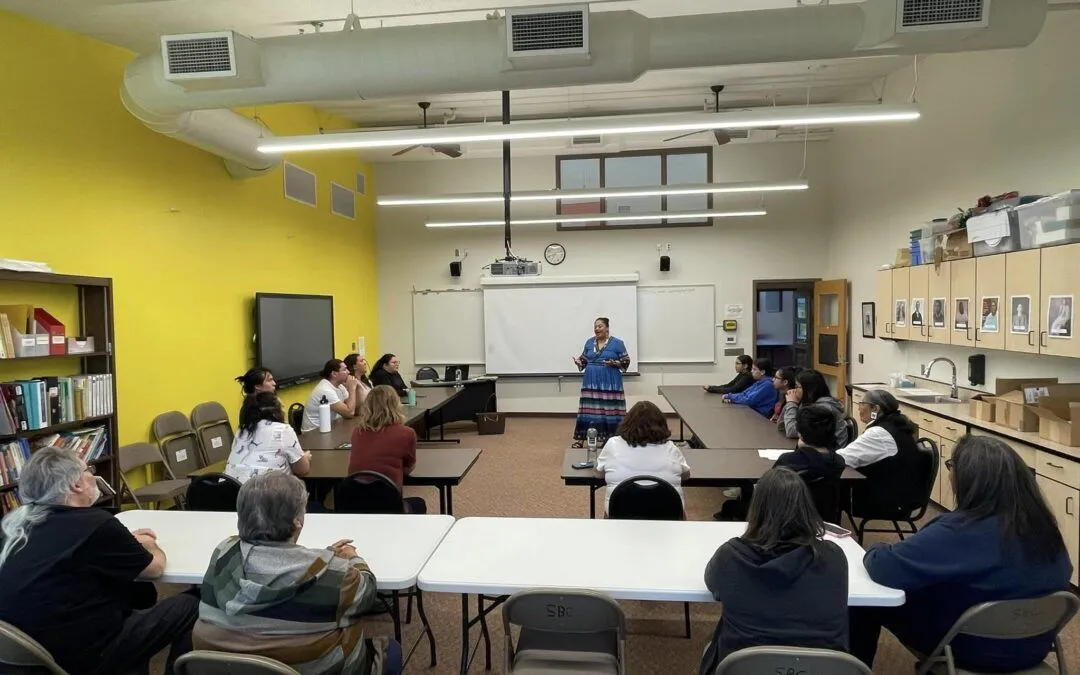
- Details
- By American Indian College Fund Blog
Guest Opinion. In 2018, the Carl D. Perkins Career and Technical Education Act was reauthorized to provide more than $1 billion in federal funding and was overseen by the Department of Education (DoE). Each year, nearly $18 million of this funding provides career and technical education programs for American Indian and Alaska Native students through the Native American Career and Technical Education Program (NACTEP). This competitive grant is open to federally recognized Indian Tribes, tribal organizations, Alaska Native entities, and eligible Bureau of Indian Affairs-funded schools.
Funding amounts can range from $300,000 - $600,000 to support career and technical education (CTE) programs that lead to one-year certificates and two-year degrees. The award covers expenses for developing rigorous academic and technical standards, especially for high-skill, high-wage, or in-demand occupations; providing professional development to improve the quality of CTE teachers, principals, administrators, and educators; and offering stipends, tuition, books, fees, childcare, counseling, job placement, transportation, supplies, specialized tools, and uniforms necessary for students to fully and effectively participate in a CTE program.
Tribal colleges and universities are some of the consistent recipients of this funding. While more recent data could not be located on the DoE or Perkins Collaborative Resource Network website (the branch of the DoE that oversees NACTEP) information from 2021 shows that 14 TCUs received grants under the program. Representatives from TCUs also participated in a Tribal Consultation held on July 23, 2024, to discuss NACTEP. Unfortunately, instead of outdated information, there may soon be no information on NACTEP available at all.
The application season for NACTEP opening on January 7 of this year but a notice regarding the FY 2025 NACTEP Grant states, “The Department will not fund applications received under this competition. This change ensures that all priorities and requirements for the Department’s FY 2025 grant competitions align with the objectives established by the Trump Administration while fostering consistency across all grant programs. Additionally, the Department is dedicated to optimizing the impact of our grant competitions for students and families, as well as enhancing the economic effectiveness of federal education funding.”
However, by freezing NACTEP, the Trump Administration has diminished the impact of federal grant funding and economic and workforce development in rural areas, where the majority of Tribes and TCUs are located. The estimated funds available for FY 2025 were listed at $21 million, which would have supported the education of potentially thousands of Americans. This decision will detrimentally impact communities across the country if the Administration does not recognize the importance of economic and workforce development and reverse course. Depriving students of training needed to fill high-skill and in-demand positions, especially while the Trump Administration declares it’s a desire to increase industry within the nation, seems counterintuitive at best and like a crash course towards a workforce shortage at worst.
We urge our supporters to call their elected officials and tell them NACTEP needs to be reopened for applications for the betterment of our students and communities.
* In an email exchange with the NACTEP competition team they confirmed the 2021 list of grantees and stated that there was no timeline for a new competition.
This article was originally published on the American Indian College Fund's blog.
Help us tell the stories that could save Native languages and food traditions
At a critical moment for Indian Country, Native News Online is embarking on our most ambitious reporting project yet: "Cultivating Culture," a three-year investigation into two forces shaping Native community survival—food sovereignty and language revitalization.
The devastating impact of COVID-19 accelerated the loss of Native elders and with them, irreplaceable cultural knowledge. Yet across tribal communities, innovative leaders are fighting back, reclaiming traditional food systems and breathing new life into Native languages. These aren't just cultural preservation efforts—they're powerful pathways to community health, healing, and resilience.
Our dedicated reporting team will spend three years documenting these stories through on-the-ground reporting in 18 tribal communities, producing over 200 in-depth stories, 18 podcast episodes, and multimedia content that amplifies Indigenous voices. We'll show policymakers, funders, and allies how cultural restoration directly impacts physical and mental wellness while celebrating successful models of sovereignty and self-determination.
This isn't corporate media parachuting into Indian Country for a quick story. This is sustained, relationship-based journalism by Native reporters who understand these communities. It's "Warrior Journalism"—fearless reporting that serves the 5.5 million readers who depend on us for news that mainstream media often ignores.
We need your help right now. While we've secured partial funding, we're still $450,000 short of our three-year budget. Our immediate goal is $25,000 this month to keep this critical work moving forward—funding reporter salaries, travel to remote communities, photography, and the deep reporting these stories deserve.
Every dollar directly supports Indigenous journalists telling Indigenous stories. Whether it's $5 or $50, your contribution ensures these vital narratives of resilience, innovation, and hope don't disappear into silence.
 The stakes couldn't be higher. Native languages are being lost at an alarming rate. Food insecurity plagues many tribal communities. But solutions are emerging, and these stories need to be told.
The stakes couldn't be higher. Native languages are being lost at an alarming rate. Food insecurity plagues many tribal communities. But solutions are emerging, and these stories need to be told.
Support independent Native journalism. Fund the stories that matter.
Levi Rickert (Potawatomi), Editor & Publisher
